One of the common complications of diabetes are foot problems. Overtime, diabetes can lead to peripheral nerve damage, accelerated peripheral arterial disease and a reduced ability to fight infections. These factors can make the foot vulnerable. It therefore needs extra care and vigilance. Annual checks often include an inspection of the feet by a trained health care professional.
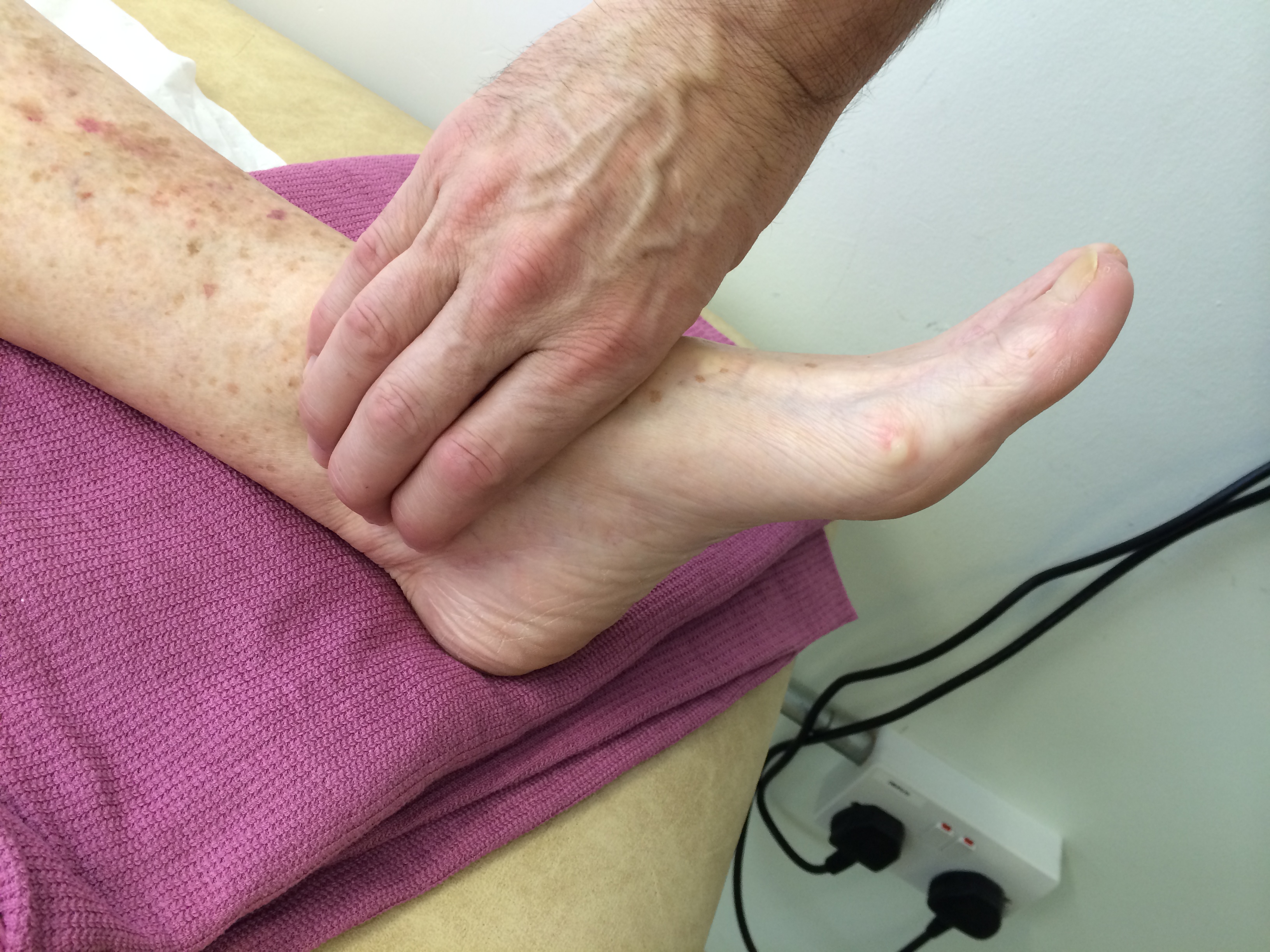
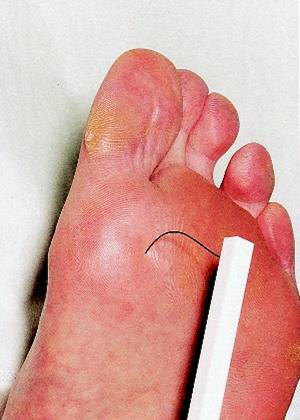
Nerve function and pulses are checked, any change in the shape of the foot is looked for, footwear advice given, and a podiatrist may treat the feet if needed. Obviously your diabetic control should be as good as possible.
All this is designed to prevent foot problems occurring. If you have any of the above problems, you will be monitored more closely, and given more foot care and potentially specially made footwear to PROTECT your feet.
If you have any symptoms of unusual pain, redness in the foot, swelling, injury to the foot, infection or ulcer make sure this is checked by your doctor or diabetic nurse as soon as possible. If they are concerned they will arrange for you to be seen urgently in a diabetic foot clinic where tests can be done to identify the problem and plan treatment EARLY before the problem becomes to severe. This early assessment to get on top of foot problems quickly before they deteriorate is VERY IMPORTANT.
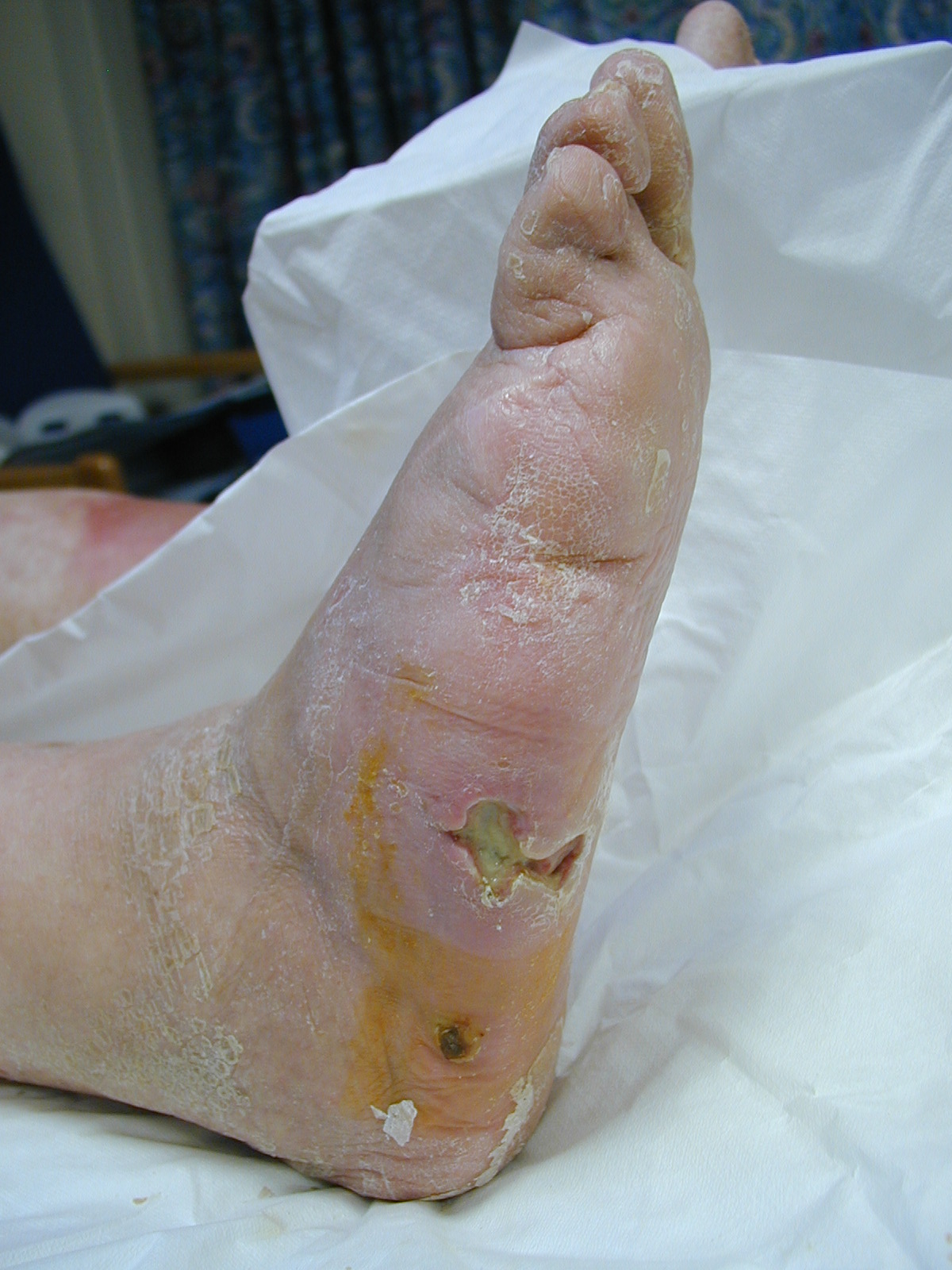
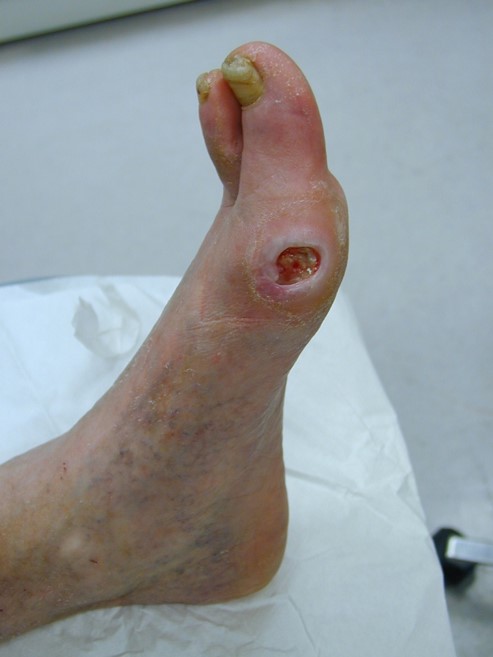
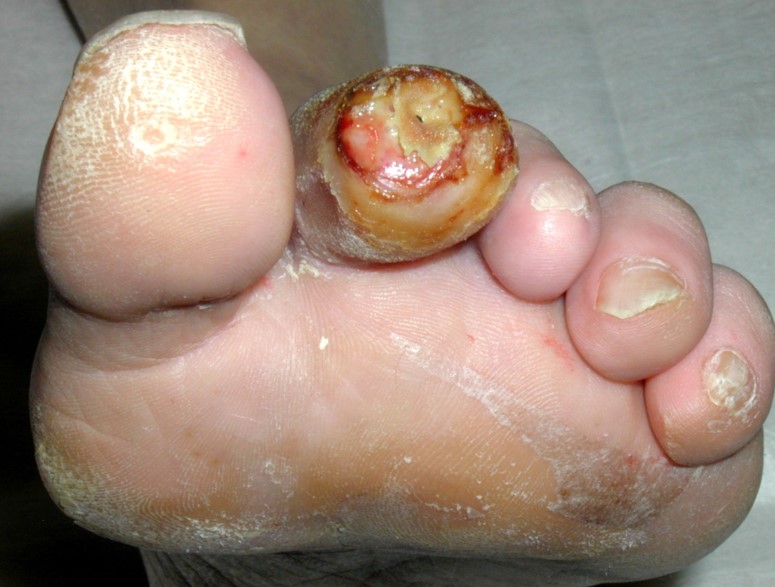
A range of treatments may be needed depending on the nature of the problem. Any wounds are cleaned and dressed, a swab will guide any antibiotic treatment needed. If the infection is severe admission to hospital for intra-venous antibiotics may be needed. When there is significant neuropathy, the foot is protected in special shoes, an aircast boot (like a ski boot) or even in a plaster if necessary. if the circulation is reduced you will need scans of the arteries and a decison made about improving the circulation with either angioplasty and stenting of surgical bypass. Treating the foot when it is ulcerated or deformed, with poor circulation is a challenge. It can take a lot of time in clinics, in casts, dressings, courses of antibiotics and artery procedures to put right. It is much better to avoid all of this by prevention and good early detection. That is why the regular screens and foot checks above are so important.
There are multiple sites for further advice about diabetic feet,
Putting feet first
NHS Choices
Diabetic foot care
Circulation Foundation